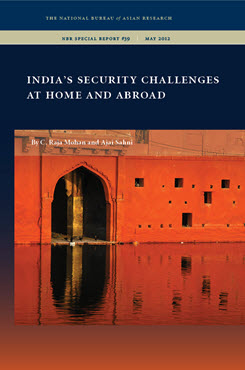Managing Multipolarity
India's Security Strategy in a Changing World
C. Raja Mohan (Observer Research Foundation) discusses the impact of the emerging multipolar world on India’s foreign and national security policies and examines the new imperatives for the country to go beyond its enduring strategy of nonalignment—including both China’s rise and the further development of the U.S.-India strategic relationship.
EXECUTIVE SUMMARY
This essay discusses the impact of the emerging multipolar world on the foreign and national security policies of India and examines the new imperatives for India to go beyond its enduring strategy of nonalignment.
MAIN FINDINGS
- India, which began its quest for a multipolar world amid fears of American hegemony after the Cold War, is now faced with the prospect of a unipolar Asia that is dominated by China.
- India’s strategy of engagement with all other great powers without having to choose between them paid rich dividends in the first two decades after the Cold War but is not sustainable in the future.
- The compulsions for looking beyond nonalignment do not stem from a prior recasting of India’s foreign policy principles but rather from adapting to the regional consequences of China’s rise for India’s extended neighborhood and to a range of global issues.
- While the logic of circumstances will eventually drive New Delhi closer to Washington, there may be many detours along the way.
POLICY IMPLICATIONS
- As India rethinks its national security strategy amid the rise of China, the U.S. will have to find ways to deal with New Delhi that are different from its standard approaches to other partners and allies.
- The Obama administration has reaffirmed former president George W. Bush’s commitment to assist India’s rise to power, but must find effective ways to translate that proposition into reality, especially in the domain of defense and security.
- Building on their converging interests in the Indian Ocean and East Asia, New Delhi and Washington must develop a measure of strategic coordination in the Persian Gulf, Central Asia, and the “Af-Pak” region.


